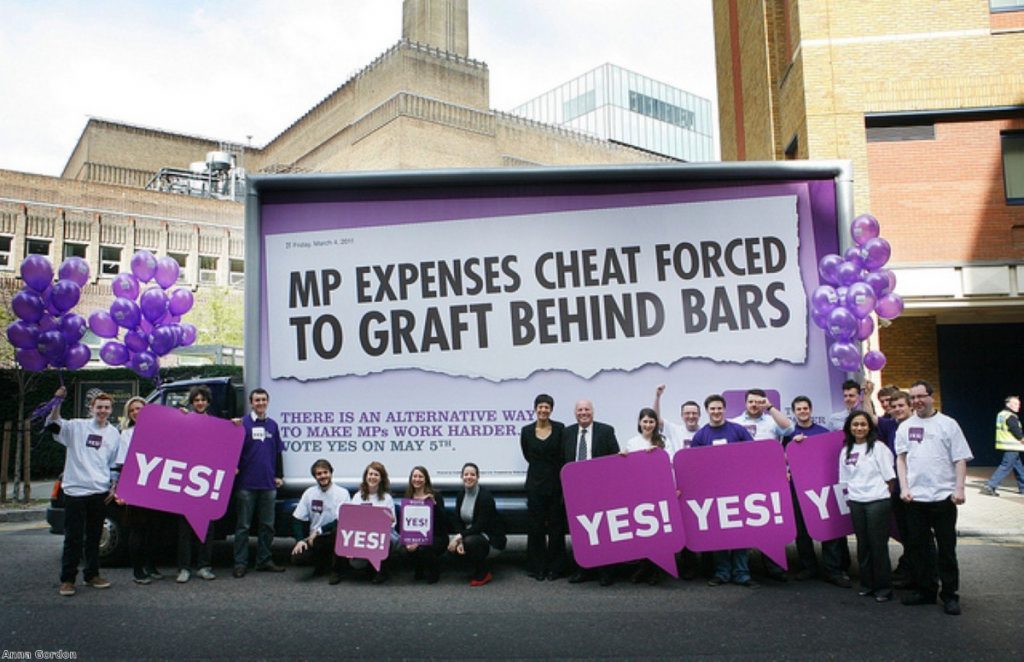Expenses anger ‘won’t help alternative vote’
Appealing to the public’s expenses anger is unlikely to win over referendum voters to the ‘yes’ campaign, research has suggested.
A study of the links between the expenses scandal and different kinds of political reform shows the case for the alternative vote is among those which benefit the least from the public’s reaction to the MPs’ allowances scandal.
The research undermines a key approach of the Yes to Fairer Votes campaign in next month’s referendum on whether or not to introduce the alternative vote system.


Advocates of electoral reform have argued the new system will force MPs to “work harder” because they will need to broaden their efforts beyond their core vote.
A recent ‘yes’ campaign video showed ordinary people shouting at MPs with megaphones as they demanded greater efforts from their elected representatives.
Research published in the latest issue of Political Quarterly journal suggests the approach may not be as successful as the ‘yes’ camp hopes.
Alan Renwick, Michael Lamb and Berna Numan say some reforming causes have done well as a result of the expenses scandal.
Introducing a right to recall and the selection of candidates through open primaries have proved popular because of the clear link between changing the behaviour of MPs and the new policies, they argue.
These have been partly been encouraged by existing MPs because their interests are not significantly affected by the changes.
Electoral reform is different, the University of Reading academics suggest. Changing the voting system has a profound impact on their careers, prompting many to view the idea of change as “deeply worrying”.
“The expenses scandal has caused significant change to the politics of electoral reform regarding some aspects of the system – most notably recall and primaries,” the authors wrote.
“Here, politicians’ interests are weak and the link between the reforms and the sources of voters’ anger is clear. Yet the scandal has provided insufficient impetus significantly to change the debate about the core of the electoral system.”
Greater political resistance would be less of a problem if the impetus for reform from below was increased to the same extent. But this is not the case, the researchers argue.
“Despite all the anger that the expenses scandal has generated, it has sparked active engagement from neither the general public nor non-specialist groups in civil society,” the writers add.
“No serious link has been drawn between the scandal and the issue of most pressing public concern, relating to the recession and the state of the public finances.”
This contrasts with Italy, Japan and New Zealand in the 1990s – where the public linked failings in the political system with wider failures in the economy, prompting major political reforms as a result.
Voters on May 5th are unlikely to respond to the ‘yes’ campaign’s appeals as strongly as they would like.
“The scandal is insufficiently linked to people’s daily lives to prompt widespread active engagement,” the University of Reading experts conclude.
“A strategy that frames AV as a response to expenses is unlikely on its own to secure a ‘yes’ vote in the coming referendum.”












